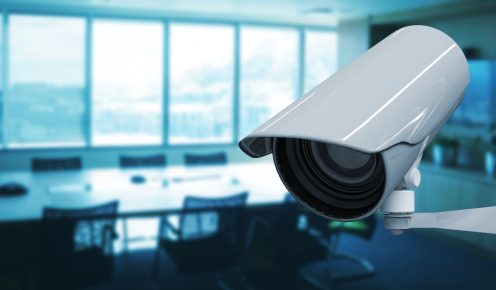It’s a common misconception that wearing glasses can make your eyesight better. While in some cases, glasses may help to improve vision, it is not always the case. In this article, we will explore how wearing glasses can potentially impact your eyesight and if there are any methods available to improve vision without the need for corrective lenses. So if you’ve ever wondered if wearing glasses can actually improve your eyesight, read on to find out.
The idea that wearing glasses can improve your eyesight is something many of us have heard at some point in our lives. But does it really work? Can you really improve your vision by simply putting on a pair of glasses? The answer is not as simple as you might think. In this blog post, we’ll explore the complexities of this issue and discuss whether or not wearing glasses can actually make your vision better. We’ll also look into which types of eyewear are most effective for improving eyesight. So read on to find out if glasses really can help improve your vision!
How wearing glasses can improve your eyesight
Wearing glasses can improve your eyesight by providing a clear image for your brain to process. This can help reduce eye strain and fatigue, as well as improve your overall vision. Additionally, wearing glasses can help prevent further damage to your eyesight and may even improve certain eye conditions.
Wearing glasses can improve your eyesight in several ways. First, they help you to focus more clearly on objects that are far away. This is because the eyeglasses correct for any refractive error, or curvature of the cornea, that may be present. As a result, light rays are bent properly and come to a sharp point of focus on the retina at the back of the eye.
In addition, wearing glasses can also protect your eyes from harmful ultraviolet (UV) rays. Many people don’t realize that spending time in the sun without proper eye protection can lead to serious problems like cataracts and macular degeneration later in life. Wearing sunglasses or prescription eyeglasses with UV-blocking lenses helps shield your eyes from these dangerous rays.
So, if you’re looking for ways to improve your vision, don’t forget about the benefits of wearing glasses!
Read More : How rare are Sanpaku Eyes
How to know if you need glasses
If you’ve never worn glasses before, it can be tricky to know when you need to start. Here are a few signs that you might need glasses:
-You squint or strain your eyes to see things up close or far away
-You have headaches after reading or working on the computer for long periods of time
-Your eyes feel tired or strained at the end of the day
– people tell you that your vision seems blurry
If any of these sound familiar, it’s worth getting your eyes checked out by an optometrist. They can help determine if glasses are necessary and what strength prescription you might need.
What type of glasses is best for improving eyesight?
There are many different types of glasses that can improve your eyesight. The best type of glasses for you will depend on your individual needs and vision problems. If you have a refractive error, like myopia or hyperopia, glasses or contact lenses can correct your vision. If you have astigmatism, glasses with cylindrical lenses can help to reduce your blurriness. If you have presbyopia, bifocals or progressive lenses can assist with reading and other close-up tasks.
Your eye doctor will be able to recommend the best type of glasses for your eyesight problem. In some cases, surgery may be a better option than corrective lenses. If you have a cataract, for example, surgery to remove the cloudy lens from your eye can restore your vision.
Also Check it : Celebrities with Sanpaku Eyes
How often you should wear glasses
There is no one definitive answer to this question. It depends on many factors, including the severity of your vision impairment, how often you wear glasses or contact lenses, and your personal preferences.
If you have a mild vision impairment, you may only need to wear glasses for certain activities, such as reading or driving. In these cases, you can usually get by with wearing glasses only when you need them.
If you have a more severe vision impairment, you may need to wear glasses all the time. This is because without corrective lenses, your eyesight would be significantly impaired. Wearing glasses all the time can help prevent further deterioration of your vision and may even improve your eyesight over time.
There are also some people who choose to wear glasses even if they don’t need them for vision correction. This is because they find that glasses help them see better than contact lenses or going without any corrective lenses at all.
Also Read : What Causes Sanpaku Eyes
Conclusion
It is clear that wearing glasses can help to improve eyesight. However, it’s important to remember that there are other factors at play when it comes to your vision health. Eating a balanced diet, exercising regularly and getting enough sleep are all important steps in maintaining healthy eyesight. Furthermore, having regular check-ups with an optometrist will ensure that you’re able to spot any potential problems that could be affecting your vision before they become serious issues. With the right combination of lifestyle habits and professional advice, you should have no problem keeping your sight sharp for years to come!















